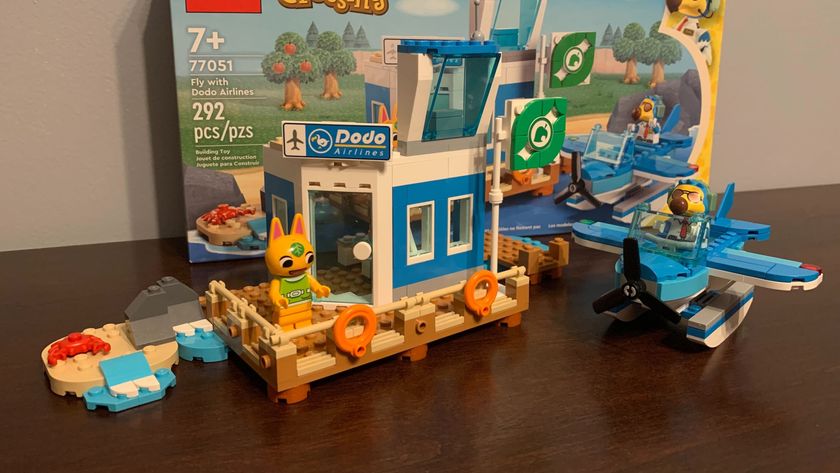What Norse mythology (and the MCU) can tell us about a God of War sequel
The revelations at the end of God of War have no doubt got your head spinning, so it’s time to look to Norse mythology to try and predict what could come next
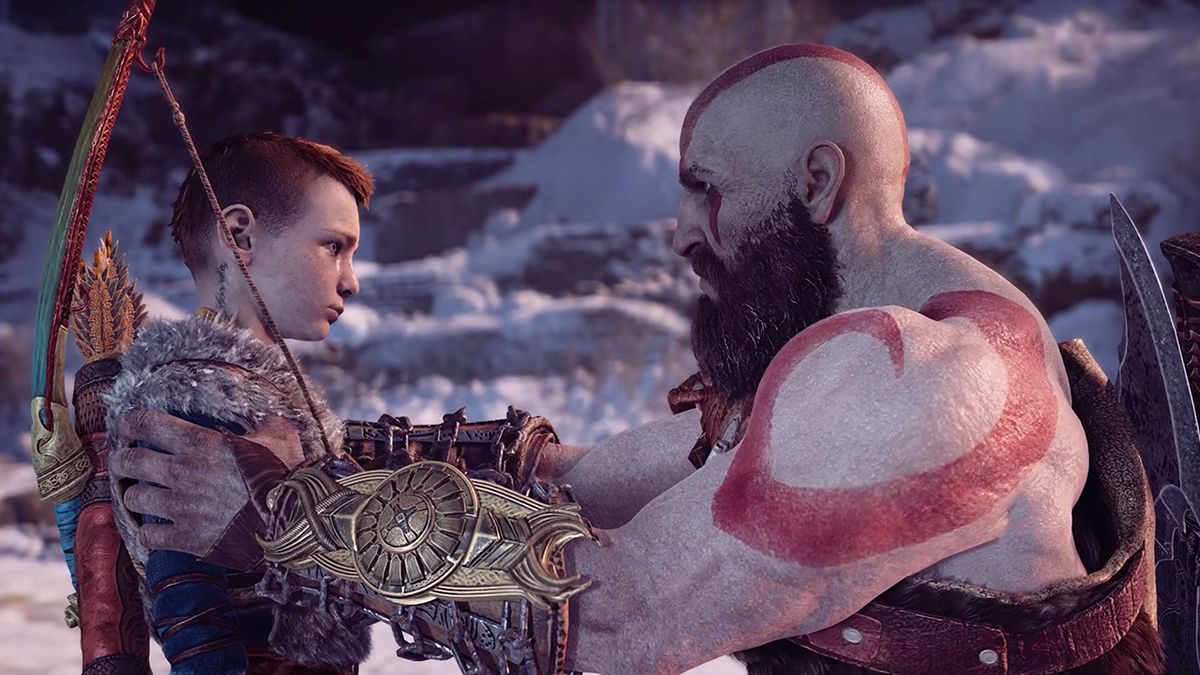
With God of War moving away from the Greek mythology of the original trilogy, firmly into the realms of the Norse gods, there were quickly questions about how huge icons like Thor and Loki could fit into Kratos’ story. The MCU has made both characters huge household names - along with the likes of Odin - to the point it’s got a bit like, “You say Norse Gods” “We say Thor”. But in reality, both Thor: Ragnarok and God of War twist the traditional Norse mythology in ways that would make Odin blush, creating new narrative arcs, switching in and out characters to make them more cinematic.
In fact, it’s God of War that stays much truer to the Norse mythology, and if you’ve completed the game’s story, and know exactly what events occur when you reach the God of War ending (and you’ve found that other God of War secret ending), you’re going to have some serious questions about what happens next. Well, diving into the original source material of the Norse myths could unlock some interesting theories about just how the next stages in Kratos and Atreus’ storyline could play out.
Of course, if you haven’t finished God of War, you’re going to need to click away now and should not scroll beyond the smiling Kratos. No, seriously, go away. Go away now.
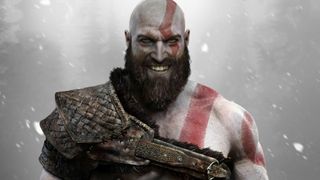
Okay, if you’re still with us, here’s what Norse mythology could tell us about the future of God of War, Kratos, Atreus and more.
Is Loki really just the God of Mischief?
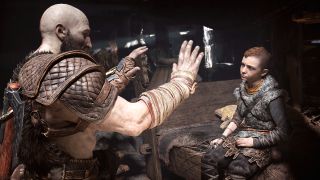
One of the biggest God of War spoilers is to do with Loki. Or, more importantly, the fact that Atreus is Loki. The revelation comes from the fact Fey, Atreus’ mother, is a giant and originally wanted to call him Loki, but she let Kratos name him after a Spartan General. In God of War, Atreus/Loki is just a young boy, but in Norse mythology he eventually goes on to father Hel, the goddess of the Underworld (who is Hela in Thor: Ragnarok); the World Serpent; and Fenrir the giant wolf who bites off the hands of Tyr and kills Odin in the mythological Ragnarok. Best not to think about the biology or geneology of that lot and just accept the weirdness.
If you’re basing your knowledge of Loki on the MCU, you’ll know that he’s the adopted brother of Hela, there’s no mention of the World Serpent, and Fenrir is Hela’s pet rather than a relative - or at least as far as we’re told. But the MCU’s Loki does conform to the usual portrayal of the god, as a shape-shifting, scheming coward who cares only for shallow pleasures and self-preservation, who is regularly playful, malicious, mischievous and everything in between.

When Atreus first finds out he’s a god in the game, he asks Kratos whether he can turn into a wolf, which is not only a nod to the traditional understanding of Loki’s powers, but also a link to his relationship with Fenrir in mythology. But there’s no sign of him being able to shape-shift at all yet in the game, as so far all we’ve seen of Atreus’ god-like qualities is his gift with languages and the fact he regularly hears voices. The latter could well be linked to the Giant’s Prophecy, which is their ability to see everything that’s going to happen. An ability that Odin desperately wants for himself, hence why Baldur was after them.
Sign up to the 12DOVE Newsletter
Weekly digests, tales from the communities you love, and more
There is a hint of something a little more sinister on the horizon though. Just before Kratos and Atreus scatter the ashes, they discover the giant shrine telling the entirety of Loki’s story, which ends with a rather ominous - and future-facing - final panel.
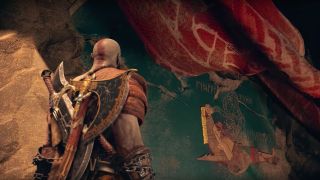
The actual meaning of the panel isn’t known by the end of God of War, but it doesn’t look good for Kratos going forward. However, as it’s also unknown what kind of Loki Atreus will be, there’s plenty of room for interpretation - especially as to whether he is harming, healing or doing something else entirely to Kratos. Any further God of War story that we get will no doubt explore whether Atreus is going to live up to the expectations of what Loki is classically perceived to be.
What’s Thor got to do with it?
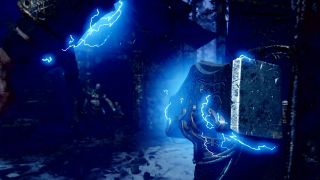
As for Thor, the God of Thunder doesn’t actually play a major role in God of War. He sends his sons, Magni and Modi, to hunt down Kratos and Atreus, but you never see him in the actual game. Well, until you unlock the God of War secret ending that is. After you’ve taken Fey’s ashes to the top of the mountain in Jotunheim, head back home and go to sleep, with Atreus exclaiming that he’s going to “sleep through winter”. When father and son wake up, “years later”, they’ve got a visitor. Thor’s at their door, complete with hammer, dramatic music and blue lightning bolts. He doesn’t actually say anything, but it’s clear he’s here to at least talk about Ragnarok, which always comes at the end of the long winter Atreus and the dwarves have spoken about - Fimbulwinter.
The fact that Thor thunders in at the end of God of War suggests he’s going to play just as big a role in the series’ version of Ragnarok as he does in the MCU. It’s just a question of exactly why Thor is coming to see Kratos and Atreus. Does he need their help stopping Ragnarok? Does he need to use the power of prophecy that only the last remaining giant, aka Atreus, would have? Or is he here to make the pair pay for killing his sons Magni and Modi, just a few years late? Only time, and more God of War content will tell.
Ragnarok and the future of God of War
As for Ragnarok itself, it’s clear that this is the next stage in the God of War story. Not only is Thor’s arrival a telling clue, but the various references to Fimbulwinter means that it’s en route. But for some characters in God of War, Ragnarok is already a painful memory. If you listen carefully to Mimir’s tales as you go around the Lake of Nine in God of War - or go through the Lore section of your Codex and read through the Serpent’s Origins note - you’ll know that the World Serpent is where he is in Midgard because of the fight he has with Thor during Ragnarok. Thor punched the giant snake so hard that it actually travelled backwards through time, hence why it has some issues with Thor and his statue on the Lake of Nine.
Interestingly, Atreus/Loki himself is also already well on his way to fulfilling the prophecies of Ragnarok. In Norse mythology one of the Ragnarok catalysts is Loki killing Baldur using mistletoe. The myths outline that Baldur - just as he is in God of War - is protected from being killed or harmed by anything, thanks to the fact his mother Freya made a deal with everything that could possibly harm him, apart from mistletoe. It’s the mistletoe arrow still holding Atreus’ quiver together that breaks Baldur’s invulnerability in the game, but in Norse mythology Loki crafts a spear out of mistletoe and passes it to a blind God to throw at Baldur at a point where all the gods are having fun throwing things at the immune Baldur.
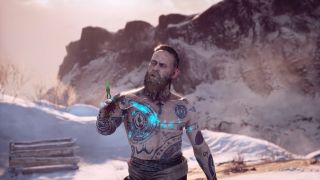
My original knowledge of Ragnarok came from the MCU, as the entire premise of Thor: Ragnarok is the impending event. But the MCU handles it very differently to the classic mythology, aside from the fact it causes the total destruction of Asgard - although thankfully not all its people.
You can’t actually travel to Asgard in God of War, but that doesn’t mean it doesn’t exist. Inside Tyr’s temple, you can see Asgard as a realm to travel to using the Bifrost, but according to the game, Odin’s prevented anyone travelling there. Ever. Or at least until the next God of War or some tasty story DLC. All the talk of Ragnarok though means that eventually Asgard is going to come into the God of War story in a major way. Ragnarok is, after all, the prophecy that contains the downfall of the cosmos and of its Norse gods and goddesses along with it, who all happen to dwell in Asgard.
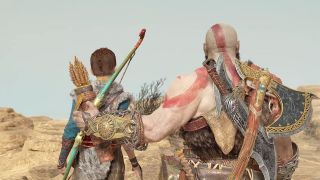
With Baldur dead at Atreus’ hand and Fimbulwinter allegedly over, Ragnarok is the next major event for God of War’s Norse timeline. In Mythology what happens next is Loki and Fenrir take a huge army to Asgard, with Fenrir running across the lands with its lower jaw on the ground and its upper jaw on the sky, destroying everything. Surtr - the big fire monster in Thor: Ragnarok and the guy who sets the final trials in the God of War Muspelheim challenges - came along behind him and just made everything that was left a giant inferno. Thor and the World Serpent have their fight, as they already have; Surtr and Freya destroy each other; and Loki and Heimdall (the far-seeing watchman of Asgard played by Idris Elba in the MCU) have their own deadly battle elsewhere. A long time after all this happens, Baldur returns from the underworld to start the world all over again, with a new human pair called Lif and Lifthrasir - the equivalent of Adam and Eve - starting things anew, and eventually all the Norse gods return and things start over again.
It could well be that Thor’s arrival signals all of this starting in God of War, or at least some of the major battles that happen in traditional mythology. After all, Freya’s going to want some revenge for Baldur’s death; we already know Thor’s going to fight the World Serpent; a number of other key characters are in place; and we’ve had mentions of other players like Surtr too. Looks like there’s a lot more God of War story to come.

Sam Loveridge is the Brand Director and former Global Editor-in-Chief of GamesRadar. She joined the team in August 2017. Sam came to GamesRadar after working at TrustedReviews, Digital Spy, and Fandom, following the completion of an MA in Journalism. In her time, she's also had appearances on The Guardian, BBC, and more. Her experience has seen her cover console and PC games, along with gaming hardware, for a decade, and for GamesRadar, she's in charge of the site's overall direction, managing the team, and making sure it's the best it can be. Her gaming passions lie with weird simulation games, big open-world RPGs, and beautifully crafted indies. She plays across all platforms, and specializes in titles like Pokemon, Assassin's Creed, The Sims, and more. Basically, she loves all games that aren't sports or fighting titles! In her spare time, Sam likes to live like Stardew Valley by cooking and baking, growing vegetables, and enjoying life in the countryside.
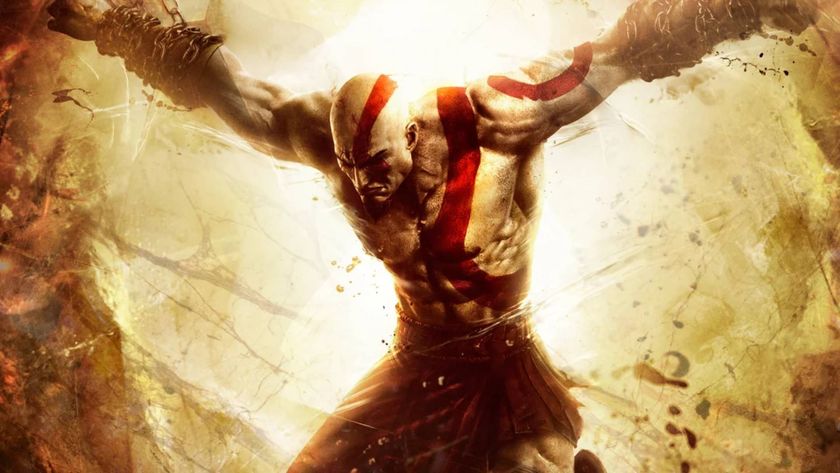
God of War: Ascension's online multiplayer is still kicking almost 12 years on, but its veterans will destroy you on sight: "Everyone who plays this right now is literally a God"
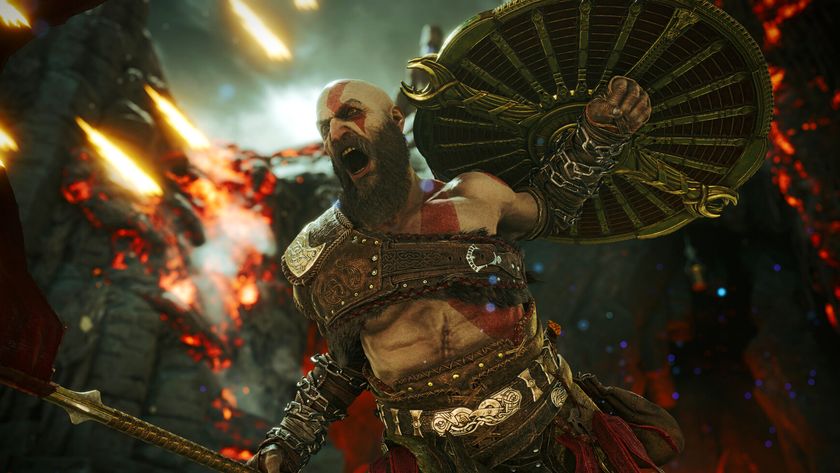
God of War actor Chris Judge says it's "absolutely not true" that he teased new content as "you can't tease something you know nothing about"
Most Popular







